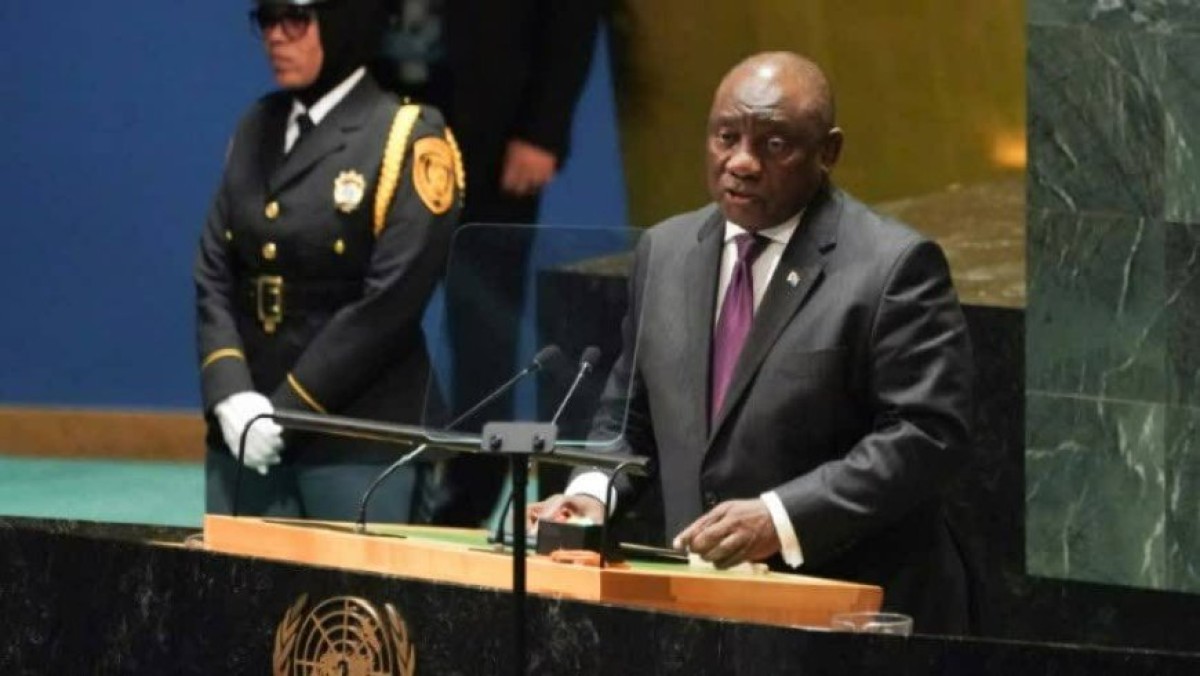 604
604
Africa's Quest for a Permanent Seat in the Security Council: A Call for a More Inclusive World Order
Africa's Quest for a Permanent Seat in the Security Council: A Call for a More Inclusive World Order
In the aftermath of WWII, the victorious nations recognized the need for an international organization that would serve as a platform for dialogue, diplomacy, and cooperation on pressing global issues. Hence, the establishment of the United Nations (UN) and its corresponding mechanisms has become more imperative today.
By: M. Sharifi
At the heart of the United Nations lies the Security Council (UNSC), an entity entrusted with the paramount responsibility of upholding international peace and security. Comprised of 15 members, five of whom are permanent (the United States, United Kingdom, China, Russia, France), and the remaining ten elected for a two-year term, the UNSC has long been the cornerstone of international governance.
Presently, the world finds itself in a bipolar state, a product of the Cold War and exacerbated by recent crises such as the Iran-Iraq War, the Syrian conflict, the campaign in Afghanistan, the war in Yemen, and the Nagorno-Karabakh conflict, among others. These circumstances, combined with the persistent issues of unilateralism, coalition-building, extraterritorial sanctions, and the protracted Palestinian occupation by the Israeli apartheid regime, have underscored the inadequacy of the current composition and performance of the Security Council. It is evident that member states primarily prioritize their national interests within international mechanisms, thereby necessitating a comprehensive reevaluation of the Council's structure.
Africa, despite representing the largest share of the UN General Assembly at 28%, is regrettably devoid of permanent representation within the UNSC. This absence hinders the continent's ability to voice its concerns and interests on matters pertaining to Africa-specific issues. Consequently, African countries face significant challenges. Recognizing this disparity, African leaders have increasingly exerted pressure for the inclusion of permanent African seats in the UNSC.
Africa's proposition is clear: the continent demands two permanent seats and five non-permanent seats, with the prerogative to determine the rightful occupants of these positions. This stance has garnered support and solidarity among African nations as they rally for a more equitable distribution of power within the global governance framework.
The glaring absence of any African country among the Security Council's permanent members has not gone unnoticed within the United Nations itself. António Guterres, the Secretary-General of the UN, recently voiced his disapproval of this state of affairs. In a thought-provoking article published on a prominent social network, Mr. Guterres posed a poignant question: "How can we accept that the African continent still lacks any permanent representation in the UNSC?" His statement underscores the need for institutions to reflect the current state of the world rather than perpetuate outdated power dynamics. The forthcoming summit in September presents an opportune moment for the deliberation of global governance reform and the restoration of trust.
Despite concerted efforts to reform the UNSC’s structure and enhance its efficacy, progress has remained elusive. Deep-seated geopolitical rivalries have hindered the attainment of a consensus on expanding the Council's membership and improving its performance. The current holders of UNSC seats, driven by self-interest, are unlikely to embrace substantial changes that might compromise their own positions. Consequently, Eastern actors will resist the entry of Western allies, and vice versa.
Furthermore, any transformative decision in this realm necessitates broad consensus within the UN General Assembly. It is only natural that if one of the major powers staunchly opposes the options on the table, their extensive network of allies, friends, and followers would rally to prevent any outcome contrary to their will.
In conclusion, the pressing need for structural reform within the UNSC is undeniable. The exclusion of Africa from permanent membership highlights the urgency for more inclusive and equitable representation. Nonetheless, the path to achieving such reform remains arduous, plagued by geopolitical complexities and divergent interests. This is a critical juncture for the international community to reflect on the imperatives of global governance and reevaluate the mechanisms that shape our shared future. Only through genuine collaboration and a commitment to fairness can we hope to forge a more just and effective global order.
 604
604
Comment
Post a comment for this article